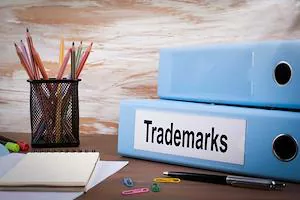ARTICLE
Trademark Registration v. Trademark Registration
On March 26, 2013 Division 1 of the Federal Court of Appeals in Civil and Commercial Matters granted the owner of trademark registration “ARGENTINA ESTÁ DE MODA” (“ARGENTINA IS FASHIONABLE”) in classes 16, 25 and 35 a preliminary injunction under Article 50 of the TRIPs Agreement, and ordered the defendant to refrain from using the trademark “ARGENTINA ESTÁ DE MODA” with the proviso that this injunction did not bar the defendant from using his trademark “ESTÁ DE MODA” (“IT IS FASHIONABLE”), as far as it was not combined with the word “Argentina”.
March 10, 2014

The salient feature of this case is that defendant Renato Papiccio owned trademark registration “IT IS FASHIONABLE” in class 41. Thus the case pitted against each other two parties having a trademark registration: the plaintiff owned a trademark registration for “ARGENTINA ESTÁ DE MODA”, and the defendant owned a trademark registration for “ESTÁ DE MODA”. Nevertheless, defendant used the expression “ARGENTINA ESTÁ DE MODA” to identify the fashion shows he held in several cities in Argentina.
At first instance the district court rejected the preliminary injunction holding that under its limited scope it was not possible to analyze the monopolization of the word “Argentina”, the only element which might distinguish one trademark over the other. Moreover, there were other registrations which include the phrase “IT IS FASHIONABLE” in Classes 35 and 41.
Division 1 of the Court of Appeals reversed this decision, arguing that the plaintiff had proved fumus bonis iuris through the ownership of the trademark registration “ARGENTINA ESTÁ DE MODA” (“ARGENTINA IS FASHIONABLE”) in classes 16, 25 and 35, and its use in “festivals of creative trends” known as “Country Code”, which included design, music, movies/theater, audiovisuals and fashion parades, amongst other subjects. The Court also acknowledged the existance of irreparable damage, stating that defendant’s use of the combination “ARGENTINA ESTÁ DE MODA” to identify his own fashion events inflicted irreparable damage on the plaintiff.
Accordingly, Division 1 revoked the first instance ruling and granted the preliminary injunction, except for the fact that it did not bar Mr. Papiccio from using his trademark “ESTÁ DE MODA” without adding the word “Argentina”.
Navigating between two registrations, the Court of Appeals acknowledged the existence of both but barred the defendant from “improving” his own trademark so as to transform it into the plaintiff’s mark.
At first instance the district court rejected the preliminary injunction holding that under its limited scope it was not possible to analyze the monopolization of the word “Argentina”, the only element which might distinguish one trademark over the other. Moreover, there were other registrations which include the phrase “IT IS FASHIONABLE” in Classes 35 and 41.
Division 1 of the Court of Appeals reversed this decision, arguing that the plaintiff had proved fumus bonis iuris through the ownership of the trademark registration “ARGENTINA ESTÁ DE MODA” (“ARGENTINA IS FASHIONABLE”) in classes 16, 25 and 35, and its use in “festivals of creative trends” known as “Country Code”, which included design, music, movies/theater, audiovisuals and fashion parades, amongst other subjects. The Court also acknowledged the existance of irreparable damage, stating that defendant’s use of the combination “ARGENTINA ESTÁ DE MODA” to identify his own fashion events inflicted irreparable damage on the plaintiff.
Accordingly, Division 1 revoked the first instance ruling and granted the preliminary injunction, except for the fact that it did not bar Mr. Papiccio from using his trademark “ESTÁ DE MODA” without adding the word “Argentina”.
Navigating between two registrations, the Court of Appeals acknowledged the existence of both but barred the defendant from “improving” his own trademark so as to transform it into the plaintiff’s mark.
This insight is a brief comment on legal news in Argentina; it does not purport to be an exhaustive analysis or to provide legal advice.